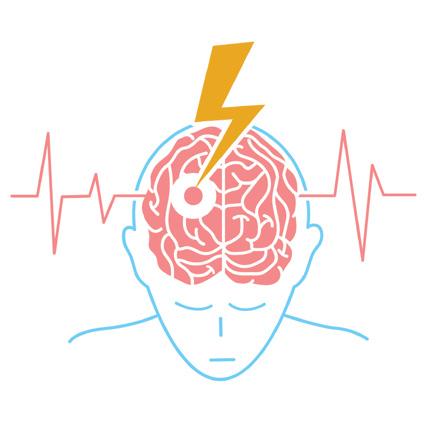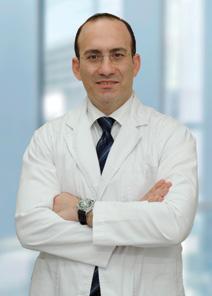
8 minute read
Healthcare
Getting a mammogram during coronavirus
Advertisement
Houston Methodist
Clear Lake Hospital was awarded an ‘A’ in the spring 2020 Leapfrog Hospital Safety Grade, a national distinction recognizing Houston Methodist Clear Lake Hospital’s achievements providing safer health care. The Leapfrog Group is an independent national watchdog organization committed to health care quality and safety.
The Safety Grade is a letter grade assigned to all general hospitals across the country and updated every six months, assessing how well the hospital prevents medical errors and other harms to patients.
“The Leapfrog Hospital Survey is the gold standard for comparing hospitals on standards of safety and quality,” said Dan Newman, CEO of Houston Methodist Clear Lake Hospital. “It is a great achievement to be recognized this year with the highest Leapfrog Safety Grade. This award reflects our commitment to patient safety, superior care and exceptional service.”
“As the nation copes with a challenging pandemic, our gratitude extends to hospital leadership and health care workers everywhere for their tremendous dedication,” said Leah Binder, president and CEO of The Leapfrog Group. “We hope this ‘A’ helps to thank the people who work and volunteer for Houston Methodist Clear Lake Hospital. They are role models in putting patients first, and their service has been extraordinary in our country’s time of need.”
Developed under the guidance of a national Expert Panel, the Leapfrog Hospital Safety Grade uses up to 28 measures of publicly available hospital safety data to assign grades to more than 2,600 U.S. acute-care hospitals twice per year. The Hospital Safety Grade’s methodology is peer-reviewed and fully transparent, and the results are free to the public.
To see Houston Methodist Clear Lake Hospital’s full grade details and access patient tips for staying safe in the hospital, visit hospitalsafetygrade.org.
Over the last few months, we’ve all primarily focused on “flattening the curve” and keeping ourselves and loved ones safe from COVID-19. And even though coronavirus cases are stabilizing in our community, we must continue to stay committed to preventing the spread of this new virus.
But, as we begin to settle into our “new normal” — knowing that the new coronavirus will be with us for some time — we should start thinking about our overall health and wellness again. For women over the age of 40, this includes your annual mammogram.
“Many of us spent the last two months putting our personal health care on hold, but now it’s time to bring our whole health back into focus,” says Dr. Modupe Adeyefa, medical director of Houston Methodist Breast Care Center at Clear Lake. “Early detection of breast cancer with annual mammography remains our most powerful tool in the fight against breast cancer in women.”
Here are three things Dr. Adeyefa would like women to know about getting their annual mammogram in the time of COVID-19.
CARE RESUMED
“In anticipation of a large influx of COVID-19 patients and to follow the orders of our governor, many procedures, including

Dr. Modupe Adeyefa, medical director of Houston Methodist Breast Care Center at Clear Lake.
mammograms, were postponed early on during the outbreak,” Dr. Adeyefa explains. “Now that our COVID-19 patient population has stabilized and statewide restrictions have been lifted, we’re resuming care and offering both routine screening mammograms and diagnostic mammograms.”
As recommended by the American College of Radiology, a screening mammogram is recommended annually for women starting at age 40. This type of mammogram is a yearly, routine check for breast cancer for women who have no symptoms or lumps.
A diagnostic mammogram is different from a screening mammogram. It’s used if palpable lumps are felt or other clinical symptoms appear. Your doctor will help you understand which is right for you.
MOVING SLOWLY
“As we begin to turn our full breadth of mammogram services back on, we’ll be doing so slowly and with an abundance of caution,” Dr. Adeyefa explains. “As always, we’re putting patient safety above all else.”
Our Breast Care Centers are taking every precaution to keep you safe, including: n Requiring all patients, visitors and employees to wear masks n Screening patients and employees upon arrival to our care centers n Practicing social distancing in our waiting rooms n Increasing housekeeping and vigilance in our disinfection protocols
IMPORTANT TOOL
Early detection of breast cancer starts with an annual mammogram
Identifying breast cancer early is an incredibly important tool, as we know that early detection improves a woman’s overall prognosis and often results in less aggressive treatment options.
“Most women will likely face a diagnosis of breast cancer in herself or a loved one at some point in her life,” says Dr. Adeyefa.
Making time for a mammogram every year is an important part of maintaining your overall wellness and protecting yourself from breast cancer.
“We at Houston Methodist Breast Care Centers are pleased to offer the best technology to our patients, such as 3D mammograms, which help us evaluate dense breast tissue. In addition, we offer dedicated breast ultrasound, breast MRI and outpatient image-guided breast biopsy,” Dr. Adeyefa adds. “We wish you stay well and visit us soon. We look forward to partnering with you in keeping your health care a priority.”
To schedule your mammogram at Houston Methodist Breast Care Center at Clear Lake, please call 281.333.8858 or schedule online at houstonmethodist.org/imaging
What a stroke looks like and why acting quickly is crucial


Dr. Joseph Naoum
Your brain needs a constant supply of oxygen and nutrients in order to function, and even a brief interruption in blood supply can cause brain damage. A stroke happens when blood flow to the brain is disrupted. Nearly 800,000 Americans will have a stroke each year, and stroke is a leading cause of serious, long-term disability — and the fifth leading cause of death in the U.S.
The two types of stroke are:
• Ischemic stroke – when blood vessels supplying the brain become blocked or clogged Hemorrhagic stroke – when blood vessels in the brain rupture and leak blood into the surrounding tissues
Brain cells and tissue begin to die after just a few minutes without blood or oxygen. Ischemic strokes are more common than hemorrhagic strokes, but both types are dangerous and deadly if not treated quickly.
Preventing permanent brain damage, and even death, means knowing the signs and symptoms of a stroke and acting quickly by calling 911 immediately. Keep in mind, someone experiencing a stroke may not be able to call for help, or may not understand that he or she is in danger.
To quickly recognize and handle a stroke event, you›ll need to BE FAST. This acronym can help you remember the signs and symptoms of a stroke, as well as what to do if someone is experiencing one.
A stroke is always considered a medical emergency, even during a pandemic. If you or a loved one needs emergency care, rest assured that Houston Methodist Clear Lake Hospital Emergency Department will take every precaution to keep you safe. To learn more about its emergency department, visit houstonmethodist.org/clearlake-er.
FIRST IN AREA
Houston Methodist Clear Lake Hospital is among the first in Clear Lake area to treat carotid artery disease and prevent future strokes using a new procedure called TransCarotid Artery Revascularization (TCAR). TCAR (tee-kahr) is a clinically proven, minimally invasive and safe approach for patients who need carotid artery treatment.
Carotid artery disease is a form of atherosclerosis, or a buildup of plaque, in the main arteries in the neck that supply oxygen-rich blood to the brain. If left untreated, carotid artery disease can often lead to stroke; it is estimated to be the source of stroke in up to a third of cases, with 427,000 new diagnoses of the disease made every year in the U.S. alone.
“TCAR is an important new option in the fight against stroke and is particularly suited for the large portion of patients we see who are at higher risk of complications from carotid surgery due to anatomy, or other medical conditions,” said Dr. Joseph Naoum, vascular and endovascular surgeon at Houston Methodist Clear Lake Hospital. “Because of its low stroke risk and faster patient recovery, I believe TCAR represents the future of carotid repair for many patients.”
BLOOD FLOW REVERSED
TCAR is unique in that blood flow is temporarily reversed during the procedure so that any small bits of plaque that may break off are diverted away from the brain, preventing a stroke from happening. A stent is then placed inside the artery to stabilize the plaque, treat the narrowing and minimize the risk of a future stroke.
The TCAR procedure was developed by Sunnyvale, Californiabased Silk Road Medical, Inc. and includes the ENROUTE® Transcarotid Neuroprotection (NPS) and Stent System – the first devices designed and FDAapproved specifically for TCAR. Over 10,000 TCAR procedures have been performed worldwide through clinical trial and commercial use. TCAR has been studied extensively and the clinical data has been excellent. Additional information about TCAR is available at silkroadmed.com/disease-andtreatment-options.
Dr. Naoum offices at Houston Methodist Cardiovascular Surgery Associates at Clear Lake located at 2060 Space Park Dr., Suite 112 on the hospital campus. To learn more about Dr. Naoum or to schedule an appointment, call 281.523.2363.
Bay Area Houston COVID-19 cases
Harris County (Week of June 25)
Clear Lake City –- 118 Deer Park — 111 El Lago — 6 Galena Park — 45 Harris County – 23,047 Houston – 14,300 La Porte — 127 League City — 4 Morgan’s Point — 0 Nassau Bay — 9 Pasadena — 602 Seabrook — 32 Shoreacres — 2 Taylor Lake Village — 11 Webster — 43
Harris/Houston deaths -- 332
Galveston County
(Week of June 25)
Bacliff/ San Leon — 73 Bayou Vista — 2 Bolivar Peninsula — 3 Clear Lake Shores — 7 Dickinson — 234 Friendswood — 161 Galveston — 313 Galveston County – 1,968 Hitchcock — 49 Jamaica Beach — 3 Kemah — 17 La Marque — 147 League City — 496 Santa Fe/Algoa — 71 Texas City — 402 Tiki Island — 2
Deaths -- 40
Brazoria County
(Week of June 25)
Alvin – 65 Pearland — 580 Brazoria County – 1,241










